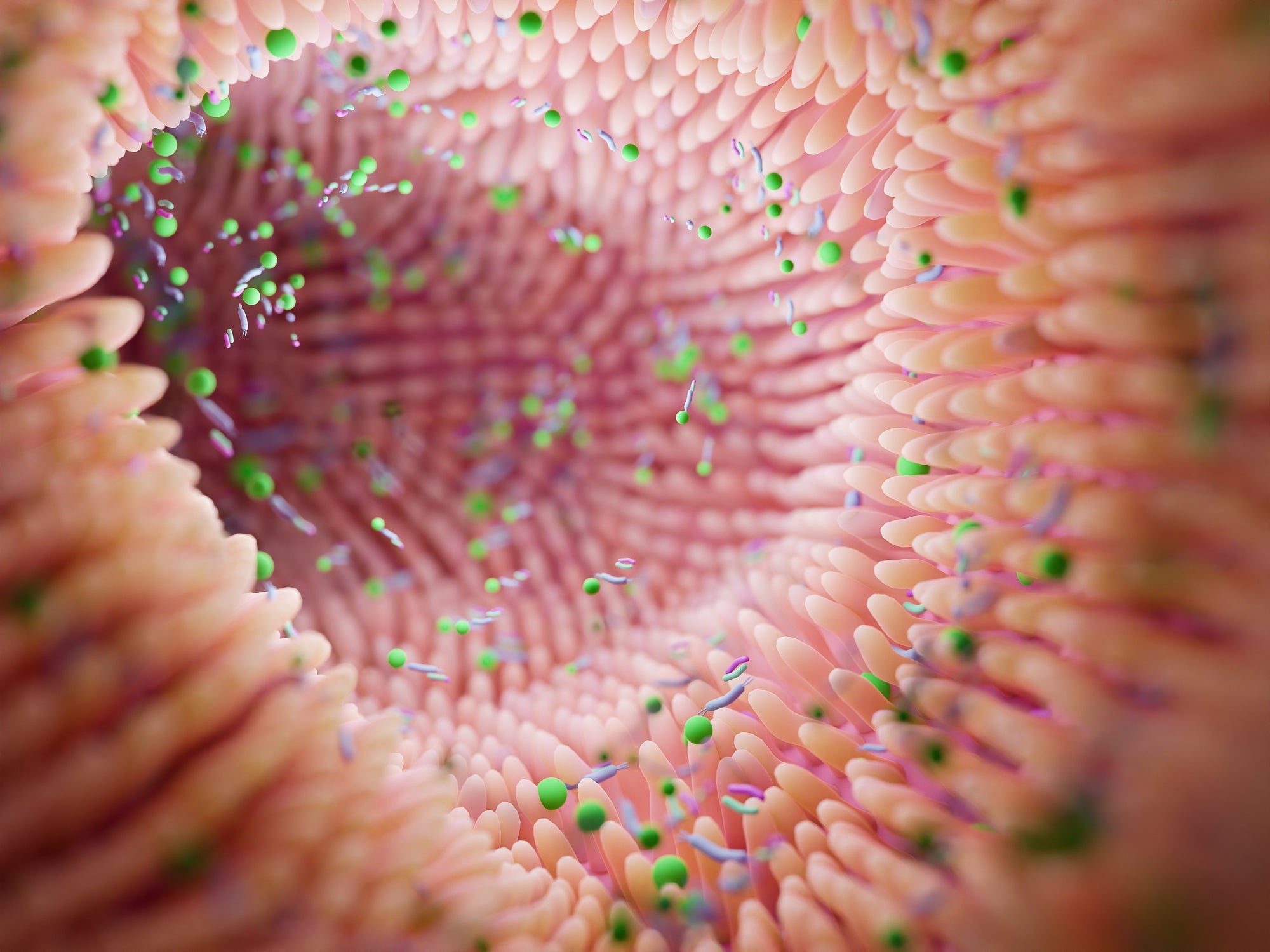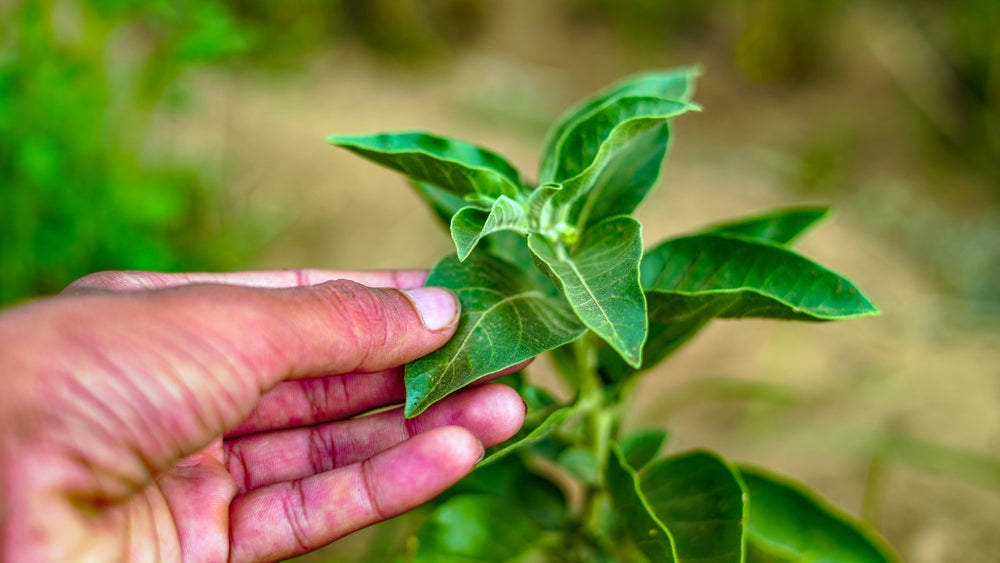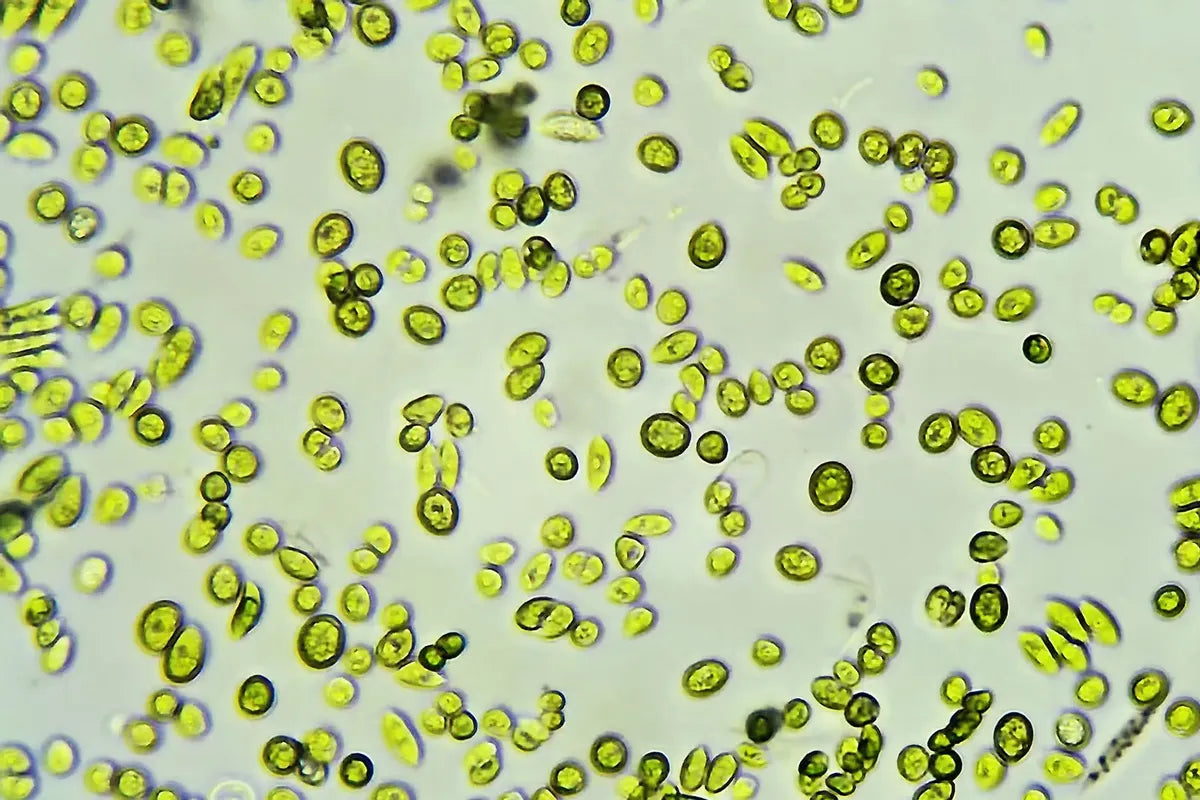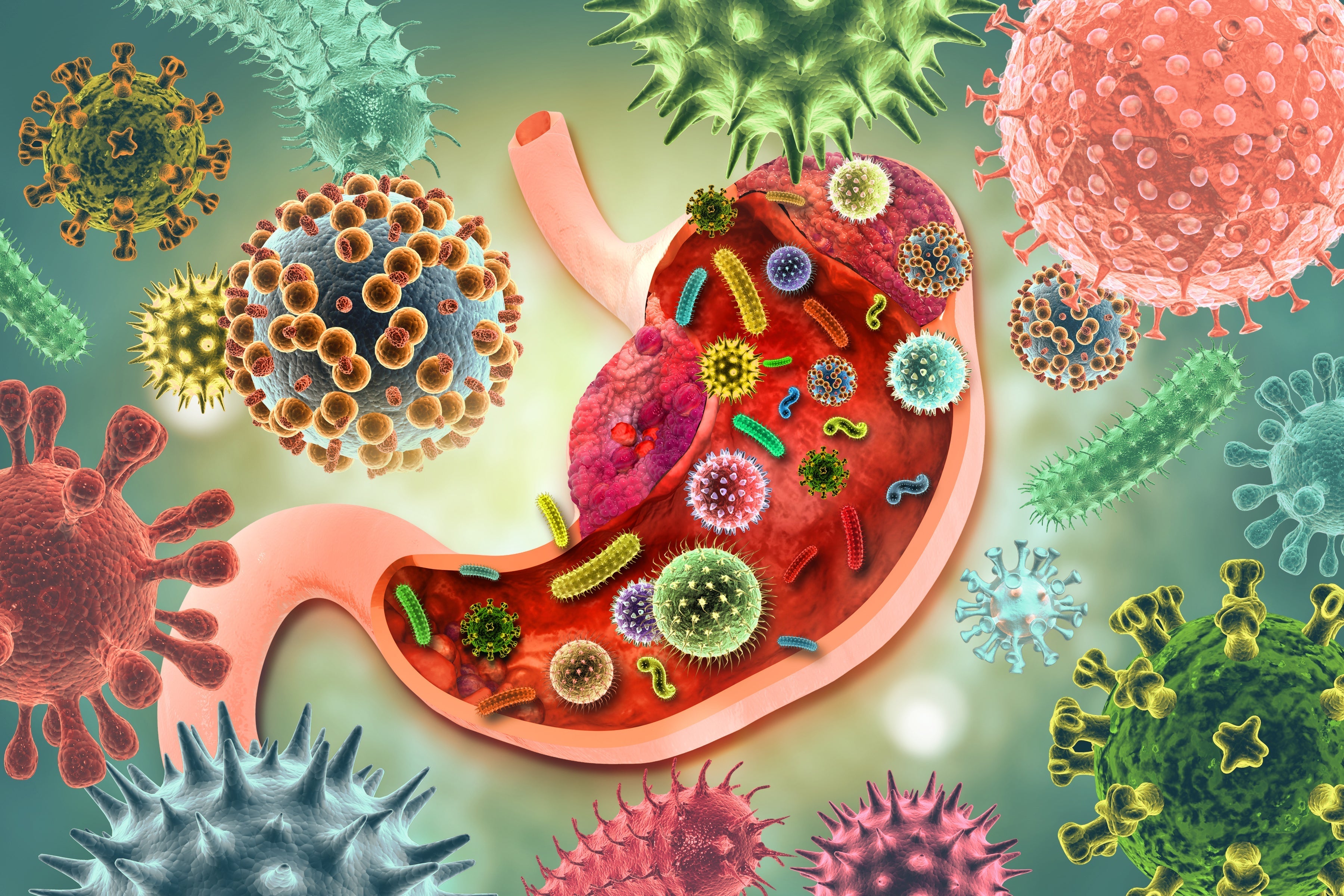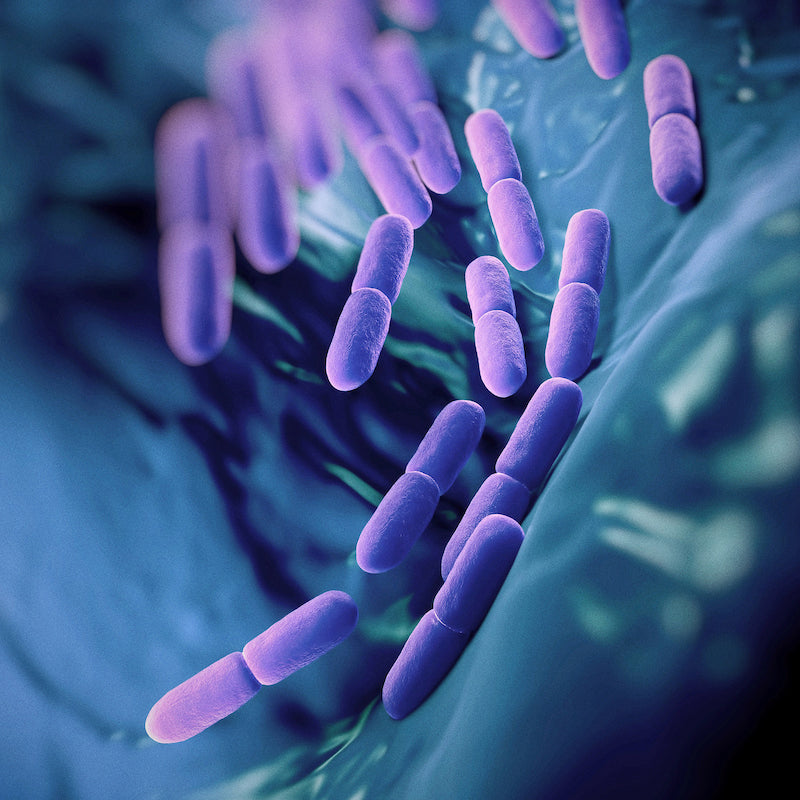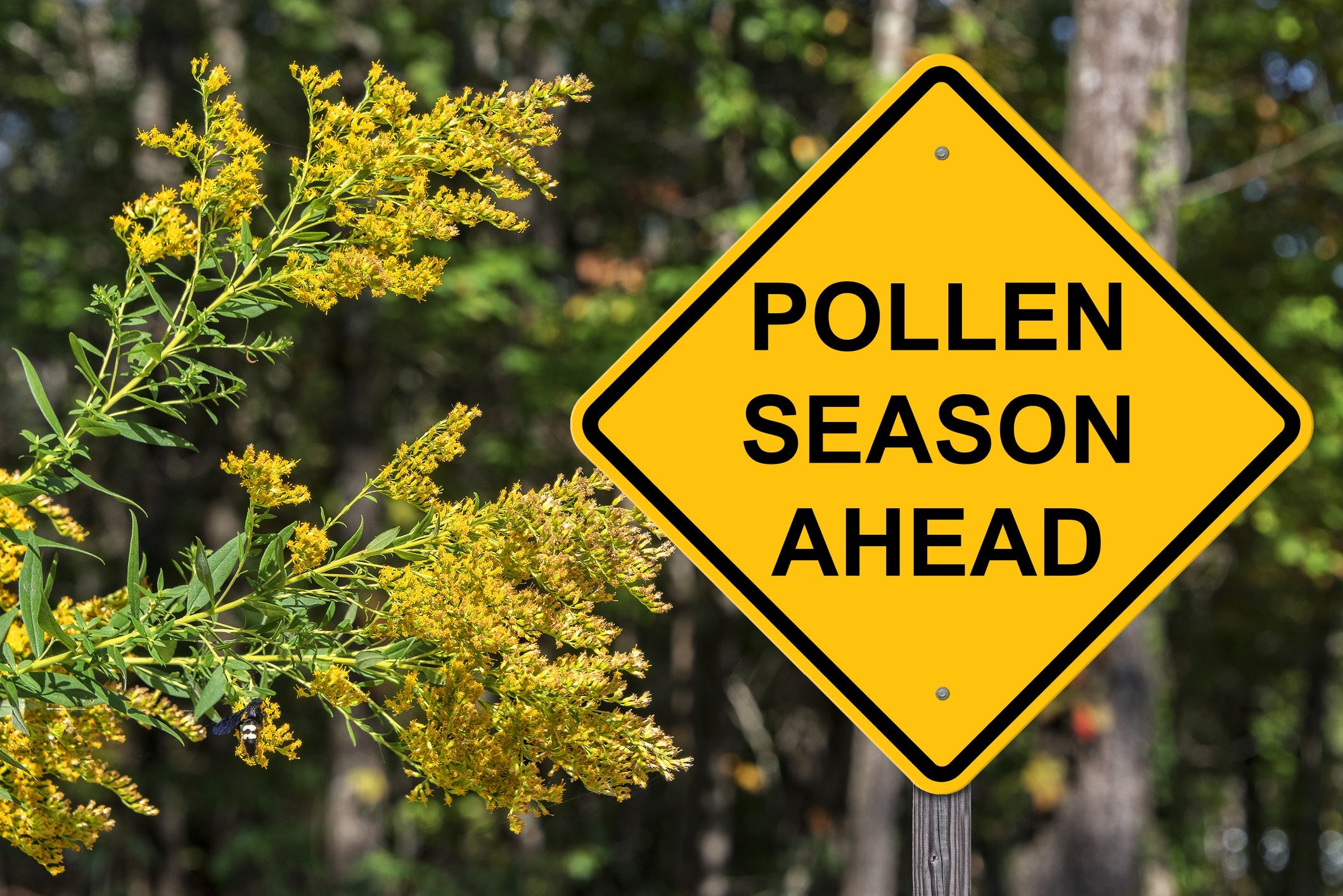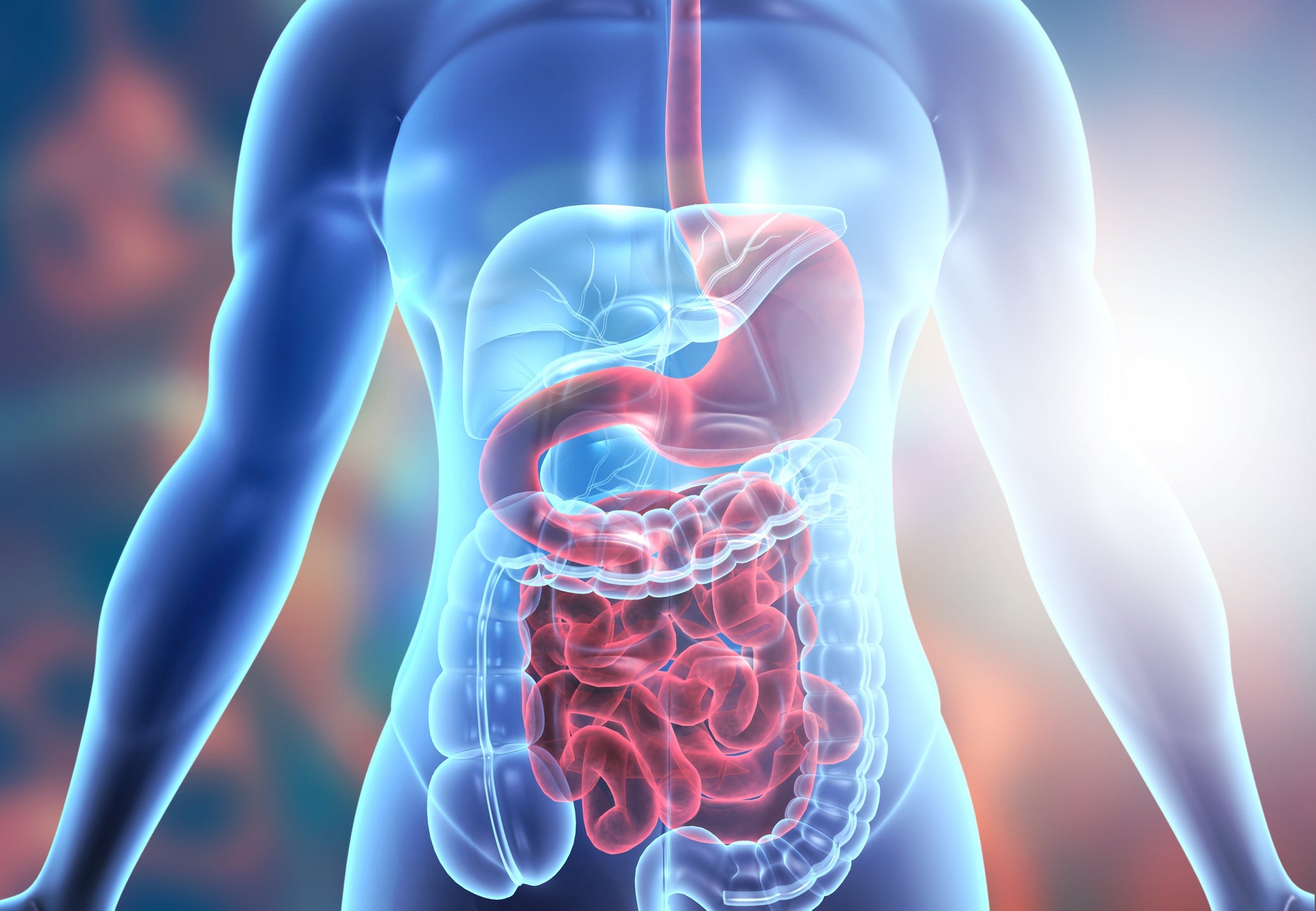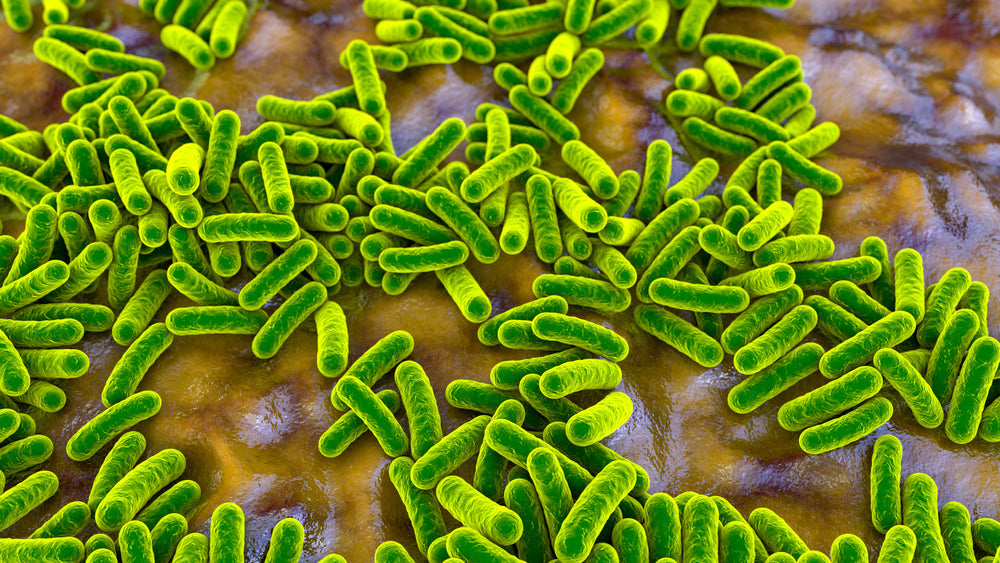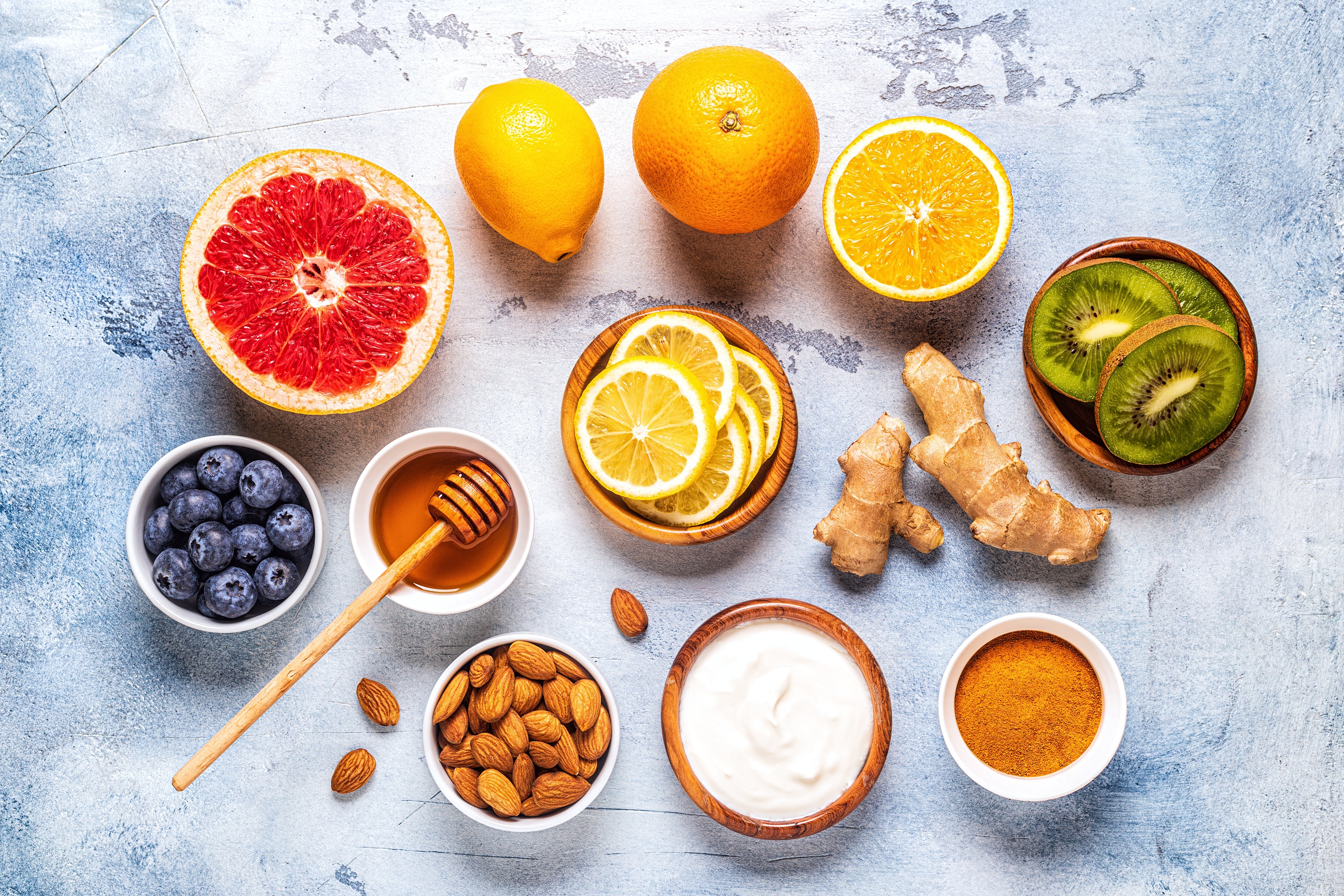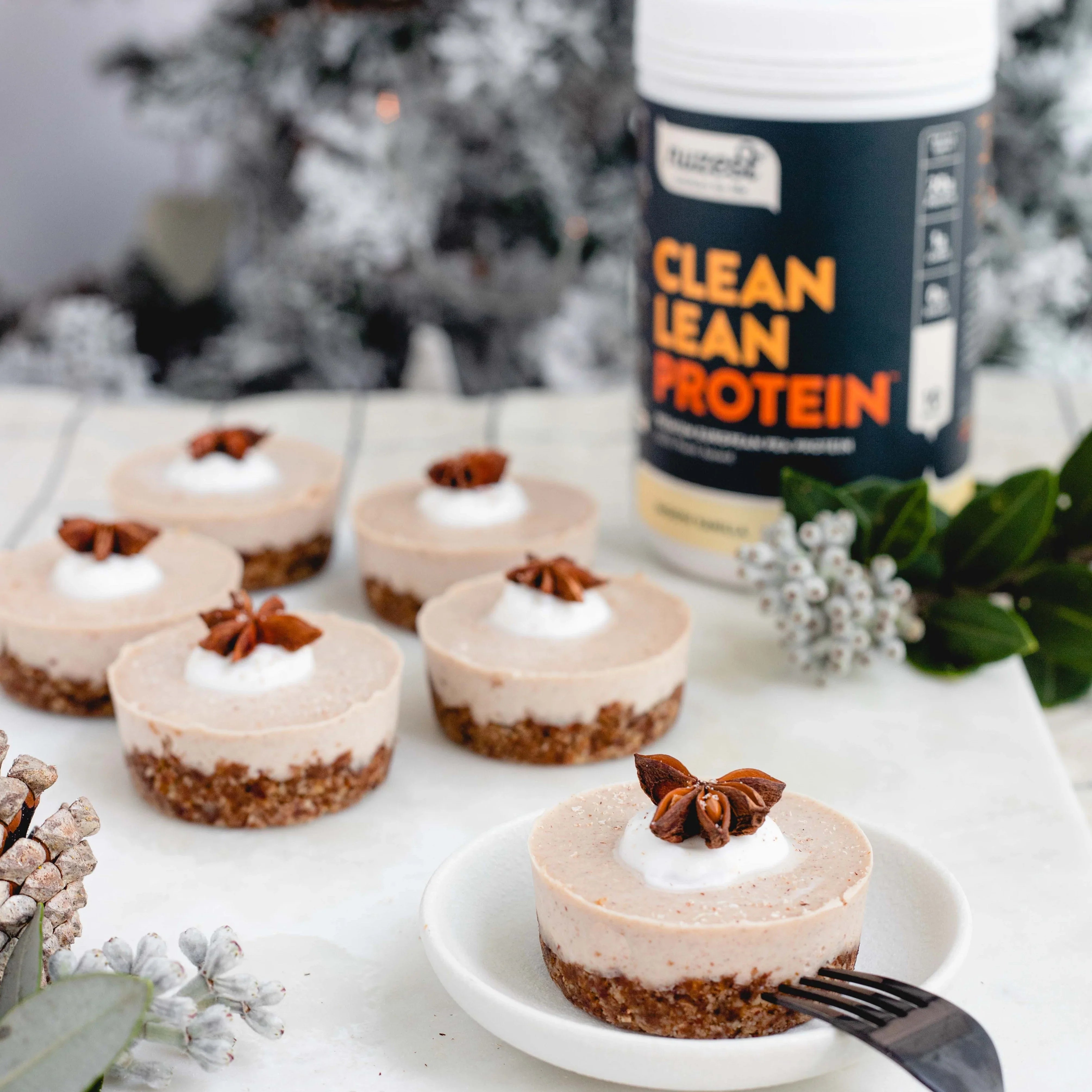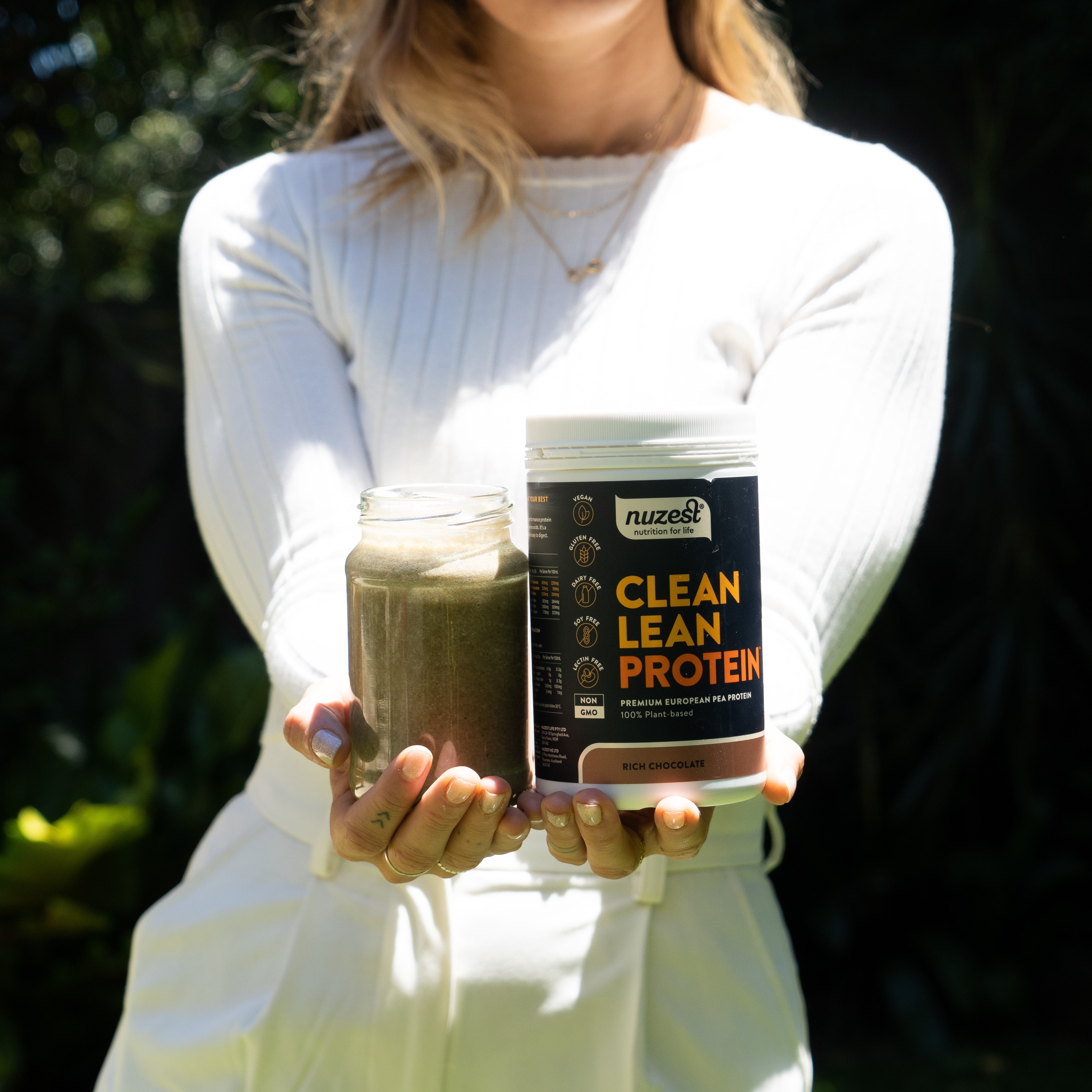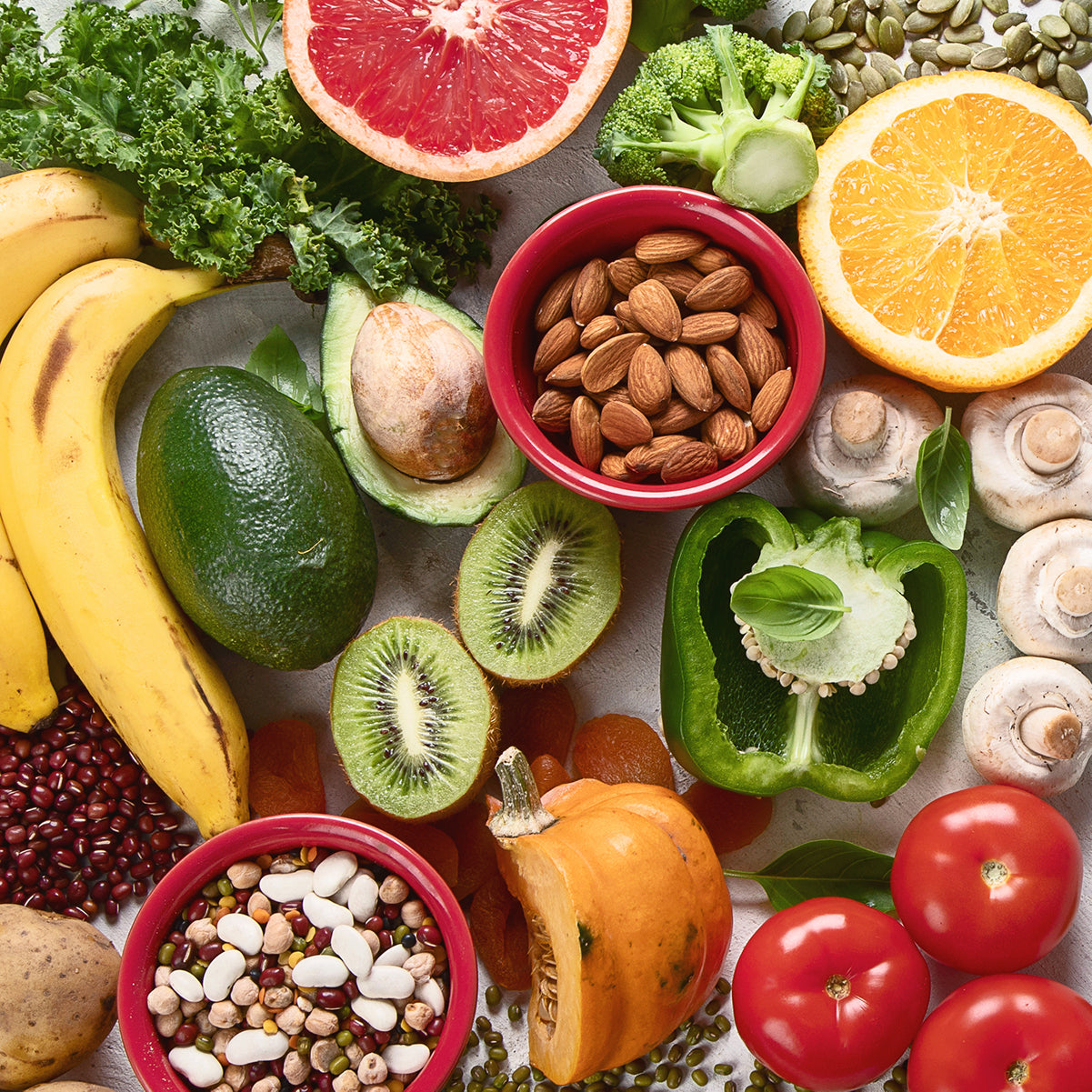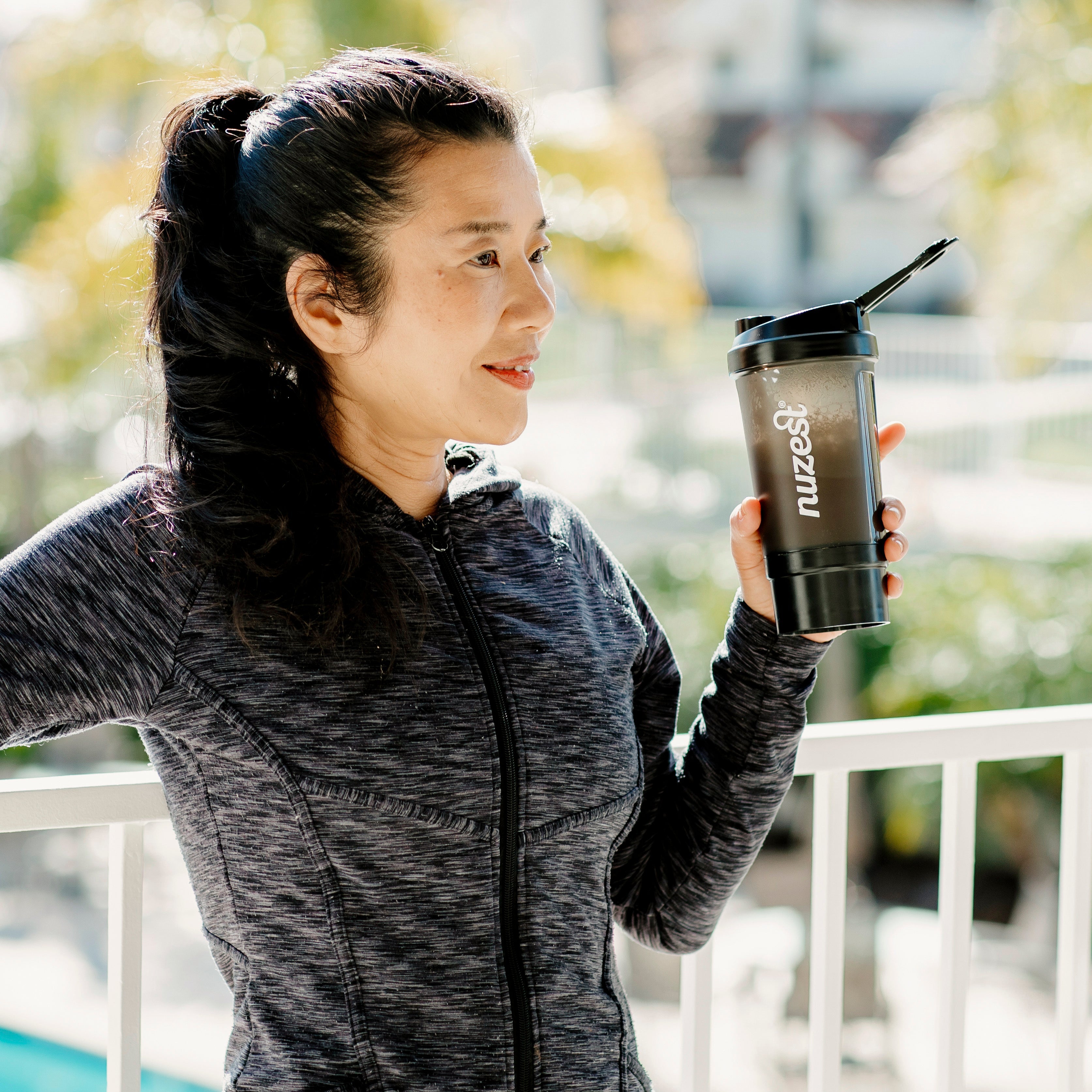Author: Megan Jones (Adv.Dip.NutMed, BHsc.NutMed)
Most of us know that prioritising a balanced diet, good quality sleep and regular exercise are all essential to a smooth-running, healthy immune system. What most of us might not know however, is that our gastrointestinal tract (aka our ‘gut’) houses over 70% of the cells that comprise our body’s entire immune system.1 In fact, a healthy gut and a robust immune system go hand in hand: having one without the other is unlikely!
It is our gut microbiome - a vast community of microorganisms residing in our digestive tract – which is critical in supporting our body's defence system.1 Here, we'll explore the fascinating connection between gut health and immunity and discuss how effective strategies like a simple, daily serve of our multi nutrient formula Good Green Vitality can help to support our body's immune system from within.
Key takeaways:
- Our gut and immune systems are intrinsically linked - our gut plays an important role in regulating our immunity.2
- The integrity of our gut wall lining can determine how susceptible we are to illnesss.3
- The trillions of bacteria in our gut are collectively known as our ‘gut microbiome’ - which can regulate our overall health and immunity.4
- What we are exposed to environmentally on a daily basis can influence the composition of our gut microbiome.5
- By consuming the appropriate amount of pre- and probiotic foods we can influence the state of our gut and immune health by ‘feeding’ our beneficial bacteria.6
Linking our immune system to gut health
Traditionally, when most people think of the immune system, their first thought might be a recurring flu or enlarged lymph nodes (remember mum feeling behind your ears!). However, the spotlight has recently turned towards our gut health, which we now know plays a critical role.7
Our immune system acts as a vigilant protector, defending us against harmful invaders such as bacteria, viruses, and toxins.8 Immunity in our gut begins with a single layer of intestinal epithelial cells that are directly exposed to what we ingest (and what we are exposed to).9
An overactive or weakened immune system, however, can disrupt this delicate balance of gut microbes. Negatively affecting our immune response, we may then be left more prone to fungal, bacterial, or viral invaders - increasing our susceptibility to illnesses.3
Our microbiome
We play host to trillions of bacteria in our gut10, collectively known as the ‘microbiome’. Our microbiome is an internal ecosystem that benefits us in many ways, including by helping us to absorb nutrients, supporting our overall health, regulating our appetite, body weight, and much more.4,11
The composition of our gut microbiome is influenced by many factors, such as genetics, gender, age, socio-economic factors, stress (both internal and external), and of course our nutrition, on a day-to-day basis. In fact, these environmental factors, such as pollutants, antibiotics – even our capacity for handling stressful situations, along with diet and all other non-genetic exposures are known collectively our ‘exposome’.5 Recent research suggests that our exposome can either drive or contribute to our gut function, therefore directly affecting our immune health.12
Did you know? The community of microbes in our gut can even train our immune cells to maintain our immunity!13
Short-chain fatty acids
The beneficial aka ‘friendly’ bacteria in our gut are able to produce substances called ‘short chain fatty acids’ - such as butyrate, propionate and acetate.14 These substances have been shown to enhance our gut barrier function and help the cells in our gut mount an immune defence against invading pathogens - preventing inflammation and supporting our whole-body immunity.15
We can help our bacteria to produce butyrate, propionate and acetate by consuming an assortment of prebiotics - foods that promote the growth of beneficial gut species. In fact, when we consume an array of prebiotics such as fibre, resistant starch and phytochemicals (‘phyto’ meaning ‘plant’) we ‘feed’ the beneficial bacteria and they in turn produce these substances to support our overall health and immunity.16
Hot tip: Cooling of cooked starch products like rice, oats, potatoes and pasta can produce resistant starch. Repeating cooking and cooling processes (reheating leftovers – easy!) can actually increase the level of resistant starch too!17
Enhancing our gut barrier function
Next to the beneficial gut bacteria, it is the gut epithelial barrier which also plays a crucial role in protecting our bodies from infections by pathogens.18
Reinforced by a layer of mucus, the cells in the lining of our intestines serve as a protective barrier, preventing harmful substances from entering our bloodstream.19
A well-balanced gut microbiome helps to maintain this barrier integrity, reducing the risk of pathogens crossing into our system.20
With the knowledge we have surrounding the importance of a healthy gut when it comes to immunity, let’s take a look at our 6 top tips to help you promote a healthy gut and immunity!
-
Eat fermented foods (probiotics):
Fermented foods are a great source of probiotics because of the live bacteria they contain.21 These bacteria work to support the integrity of our gut wall barrier and also break down carbohydrates to create highly anti-inflammatory short-chain fatty acids - arguably the most important metabolites for both our gut and immune function! Nuzest’s Good Green Vitality contains a total 8 billion CFU of probiotics, with 5 billion CFU of Lactobacillus acidophilus and 3 billion CFU of Bifidobacterium bifidum.
-
Feed the ‘friendly’ bacteria (prebiotics):
Eat more plants! Most experts would agree that the key to gut health is to eat plants in the form of more vegetables, fruits, legumes, grains, nuts and seeds - these provide the raw material for bacterial fermentation and short-chain fatty acid production.6 By diversifying the number of plants we eat we also diversify the number of beneficial bacteria that grow in our gut!22
-
Stay hydrated:
Proper hydration can help the mucous cell membrane act as a barrier to prevent harmful bacteria from entering our body. Water also helps to break down food so that our gut can absorb nutrients.23 Consuming Nuzest’s Good Green Vitality daily in a large glass of water can not only boost hydration but also support our multi-nutrient intake!
-
Limit stress:
The gut microbiota seems to respond to stress signals from our body directly, indicating that long-term, high levels of stress hormones like cortisol can contribute to a heightened inflammatory response in and be detrimental to our gut.24
Did you know: Adaptogens are a group of plants which offer protective benefits and stress management?25 Nuzest’s Good Green Vitality contains adaptogenic herbs such as Ashwaghanda and Rhodiola - both well researched and evidenced to support the body’s stress response.26,27
-
Limit processed food and eat foods rich in fibre:
Focussing on consuming plenty of fibre and complex carbohydrates in our diet helps feed the ‘friendly’ beneficial bacteria. Eating foods that are as close to their natural state as possible will also support our overall gut health.28
-
Outdoor activity and exercise:
Recent studies suggest that exercise can enhance the number of our ‘friendly’ beneficial bacteria, enrich the diversity of our microbiome, and improve the development of commensal bacteria.29 Studies show that aerobic exercise can change our microbiome within 2 weeks of exercising and establish a stable new bacterial composition between 6 and 8 weeks.30
References:
- Wiertsema SP, van Bergenhenegouwen J, Garssen J, Knippels LMJ. The Interplay between the Gut Microbiome and the Immune System in the Context of Infectious Diseases throughout Life and the Role of Nutrition in Optimizing Treatment Strategies. Nutrients [Internet]. 2021 Mar 9;13(3):886. Available from: https://www.ncbi.nlm.nih.gov/pmc/articles/PMC8001875/
- Uncovering the links between diet, gut health and immunity [Internet]. The University of Sydney. [cited 2023 Jun 27]. Available from: http://www.sydney.edu.au/news-opinion/news/2022/08/03/uncovering-the-links-between-diet--gut-health-and-immunity.html
- Vijay A, Valdes AM. Role of the gut microbiome in chronic diseases: a narrative review. European Journal of Clinical Nutrition [Internet]. 2021 Sep 28;1–13. Available from: https://www.nature.com/articles/s41430-021-00991-6?fbclid=IwAR3hURerCCmnDi2rNUKqO433GlApXMbYRHkq3MqEuJECs5hJQlPYXKShmTo
- Thursby E, Juge N. Introduction to the human gut microbiota. Biochemical Journal [Internet]. 2017 May 16;474(11):1823–36. Available from: https://www.ncbi.nlm.nih.gov/pmc/articles/PMC5433529/
- Vineis P, Robinson O, Chadeau-Hyam M, Dehghan A, Mudway I, Dagnino S. What is new in the exposome? Environment International. 2020 Oct;143:105887.
- Dahiya D, Nigam PS. Probiotics, Prebiotics, Synbiotics, and Fermented Foods as Potential Biotics in Nutrition Improving Health via Microbiome-Gut-Brain Axis. Fermentation. 2022 Jun 27;8(7):303.
- Wiertsema, Selma P., et al. “The Interplay between the Gut Microbiome and the Immune System in the Context of Infectious Diseases throughout Life and the Role of Nutrition in Optimizing Treatment Strategies.” Nutrients, vol. 13, no. 3, 9 Mar. 2021, p. 886, www.ncbi.nlm.nih.gov/pmc/articles/PMC8001875/, https://doi.org/10.3390/nu13030886.
- Grubbs H, Kahwaji CI. Physiology, Active Immunity [Internet]. PubMed. Treasure Island (FL): StatPearls Publishing; 2021. Available from: https://pubmed.ncbi.nlm.nih.gov/30020652/
- Wiertsema SP, van Bergenhenegouwen J, Garssen J, Knippels LMJ. The Interplay between the Gut Microbiome and the Immune System in the Context of Infectious Diseases throughout Life and the Role of Nutrition in Optimizing Treatment Strategies. Nutrients [Internet]. 2021 Mar 9 [cited 2021 Sep 25];13(3):886. Available from: https://www.ncbi.nlm.nih.gov/pmc/articles/PMC8001875/
- Guinane CM, Cotter PD. Role of the gut microbiota in health and chronic gastrointestinal disease: understanding a hidden metabolic organ. Therapeutic Advances in Gastroenterology [Internet]. 2013 Mar 26;6(4):295–308. Available from: https://www.ncbi.nlm.nih.gov/pmc/articles/PMC3667473/
- Guinane CM, Cotter PD. Role of the gut microbiota in health and chronic gastrointestinal disease: understanding a hidden metabolic organ. Therapeutic Advances in Gastroenterology [Internet]. 2013 Mar 26;6(4):295–308. Available from: https://www.ncbi.nlm.nih.gov/pmc/articles/PMC3667473/
- Morales JS, Valenzuela PL, Castillo-García A, Butragueño J, Jiménez-Pavón D, Carrera-Bastos P, et al. The Exposome and Immune Health in Times of the COVID-19 Pandemic. Nutrients. 2021 Dec 22;14(1):24.
- Belkaid Y, Hand Timothy W. Role of the Microbiota in Immunity and Inflammation. Cell [Internet]. 2014 Mar;157(1):121–41. Available from: https://www.ncbi.nlm.nih.gov/pmc/articles/PMC4056765/
- Tan J, McKenzie C, Potamitis M, Thorburn AN, Mackay CR, Macia L. The Role of Short-Chain Fatty Acids in Health and Disease. Advances in Immunology [Internet]. 2014;121:91–119. Available from: https://www.sciencedirect.com/science/article/pii/B9780128001004000039?via%3Dihub
- Blaak EE, Canfora EE, Theis S, Frost G, Groen AK, Mithieux G, et al. Short chain fatty acids in human gut and metabolic health. Beneficial Microbes. 2020 Sep 1;11(5):411–55.
- Lattimer JM, Haub MD. Effects of Dietary Fiber and Its Components on Metabolic Health. Nutrients [Internet]. 2010 Dec 15;2(12):1266–89. Available from: https://www.ncbi.nlm.nih.gov/pmc/articles/PMC3257631/
- S S, F W, R R. Effect of Cooling of Cooked White Rice on Resistant Starch Content and Glycemic Response [Internet]. Asia Pacific journal of clinical nutrition. 2015. Available from: https://pubmed.ncbi.nlm.nih.gov/26693746/
- Okumura R, Takeda K. Roles of intestinal epithelial cells in the maintenance of gut homeostasis. Experimental & Molecular Medicine [Internet]. 2017 May;49(5):e338–8. Available from: https://www.ncbi.nlm.nih.gov/pmc/articles/PMC5454438/
- Hansson GC. Role of mucus layers in gut infection and inflammation. Current Opinion in Microbiology. 2012 Feb;15(1):57–62.
- Wiertsema SP, van Bergenhenegouwen J, Garssen J, Knippels LMJ. The Interplay between the Gut Microbiome and the Immune System in the Context of Infectious Diseases throughout Life and the Role of Nutrition in Optimizing Treatment Strategies. Nutrients [Internet]. 2021 Mar 9 [cited 2021 Sep 25];13(3):886. Available from: https://www.ncbi.nlm.nih.gov/pmc/articles/PMC8001875/
- Leeuwendaal NK, Stanton C, O’Toole PW, Beresford TP. Fermented Foods, Health and the Gut Microbiome. Nutrients [Internet]. 2022 Apr 6 [cited 2022 May 3];14(7):1527. Available from: https://pubmed.ncbi.nlm.nih.gov/35406140/
- Losno EA, Sieferle K, Perez-Cueto FJA, Ritz C. Vegan Diet and the Gut Microbiota Composition in Healthy Adults. Nutrients. 2021 Jul 13;13(7):2402.
- Sensoy I. A review on the food digestion in the digestive tract and the used in vitro models. Current Research in Food Science [Internet]. 2021 Jan 1;4:308–19. Available from: https://www.sciencedirect.com/science/article/pii/S2665927121000307
- Lyte M, Vulchanova L, Brown DR. Stress at the intestinal surface: catecholamines and mucosa–bacteria interactions. Cell and Tissue Research. 2010 Oct 13;343(1):23–32.
- Liao L, He Y, Li L, Meng H, Dong Y, Yi F, et al. A preliminary review of studies on adaptogens: comparison of their bioactivity in TCM with that of ginseng-like herbs used worldwide. Chinese Medicine [Internet]. 2018 Nov 16;13(1). Available from: https://www.ncbi.nlm.nih.gov/pmc/articles/PMC6240259/
- Gopukumar K, Thanawala S, Somepalli V, Rao TSS, Thamatam VB, Chauhan S. Efficacy and Safety of Ashwagandha Root Extract on Cognitive Functions in Healthy, Stressed Adults: A Randomized, Double-Blind, Placebo-Controlled Study. Hughes C, editor. Evidence-Based Complementary and Alternative Medicine. 2021 Nov 30;2021:1–10.
- Ivanova Stojcheva E, Quintela JC. The Effectiveness of Rhodiola rosea L. Preparations in Alleviating Various Aspects of Life-Stress Symptoms and Stress-Induced Conditions—Encouraging Clinical Evidence. Molecules. 2022 Jun 17;27(12):3902.
- Panahi S, Jones W, Duncan AM, Ferland G, Keller H, Grantham A, et al. Guidance and perspectives on highly processed foods. Applied Physiology, Nutrition, and Metabolism. 2022 Oct 1;47(10):1038–44.
- Monda V, Villano I, Messina A, Valenzano A, Esposito T, Moscatelli F, et al. Exercise Modifies the Gut Microbiota with Positive Health Effects. Oxidative Medicine and Cellular Longevity. 2017;2017:1–8.
- Boytar AN, Skinner TL, Wallen RE, Jenkins DG, Dekker Nitert M. The Effect of Exercise Prescription on the Human Gut Microbiota and Comparison between Clinical and Apparently Healthy Populations: A Systematic Review. Nutrients. 2023 Mar 22;15(6):1534.
